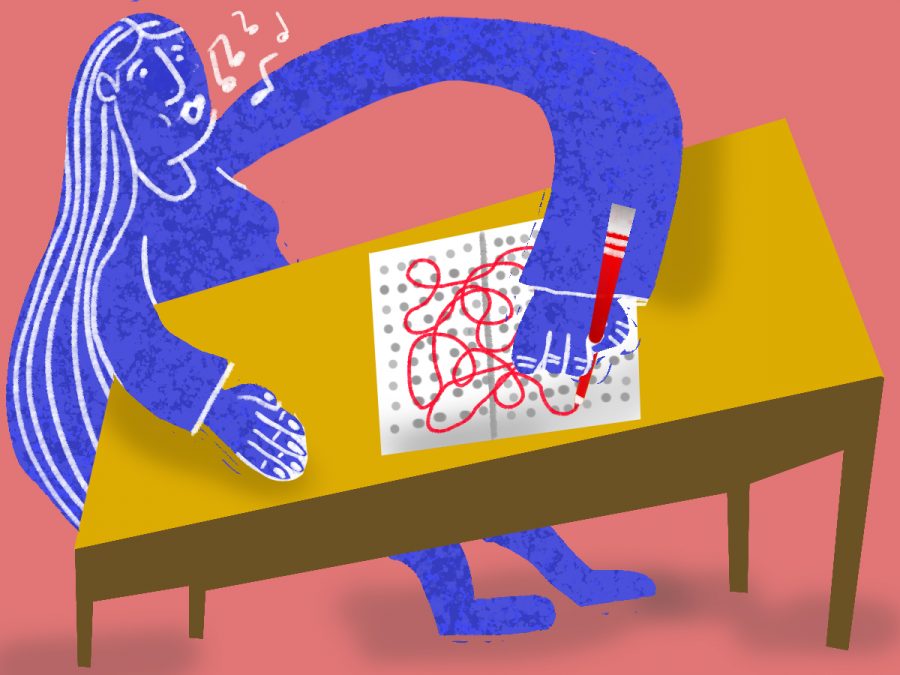My day starts at 6 a.m and ends at 12 a.m. It is jam-packed with classes, office hours and other miscellaneous activities, and sometimes I have to block out extra time toward the end of it to take a midterm.
Last fall, my general chemistry test time was 9:30-11 p.m. Taking a strenuous midterm at the tail end of a full day of activities is no easy feat. I found myself burdened with undue stress and chugging obscene amounts of coffee in anticipation of the test. I couldn’t focus on any of the other things I had to do earlier in the day. This was not healthy, and it didn’t serve me well in terms of academic success or mental well-being.
UT should stop scheduling midterms at odd hours to preserve students’ emotional, mental and physical well-being. Instead of scheduling exams at night, the system should allow exams to be administered during class or over a couple of class periods if the exam is longer than the class period itself.
Aidan Comiskey, Plan II and biochemistry sophomore, has to take his organic chemistry midterms from 7-10 p.m.
“It’s really taxing to take (organic chemistry) so late, especially since it’s such a tough and stressful class,” Comiskey said. “I also have to miss part of a seminar that I really enjoy, which takes place from 6-7 p.m, and even when I’m there for the first half, I can’t pay attention because I’m so worried about the upcoming test.”
Comiskey’s experience reflects the experiences of many undergraduates who are required to take large introductory STEM classes, as these courses often schedule midterms at odd hours.
Jordan Johnson, academic affairs coordinator for the chemistry department, said the scheduling process starts with the professor setting specific exam dates. Then, he submits the time requested to the Office of the Registrar to reserve spaces for evening exams. He said the rationale for evening exams is that few students have classes after 5 p.m., so later exams minimize conflicts.
Johnson believes evening exams can be beneficial.
“I would argue evening exams have a positive effect for students’ mental health,” Johnson said. “Exams are stressful for students regardless of when they’re scheduled. Evening exams are a huge help in one aspect of this — preventing students from feeling rushed to finish in a small amount of time. Another positive for the students’ testing experience is the ability to split into multiple exam rooms and sit in every other seat. Testing in the evening allows us to spread out and prevent students from feeling cramped and bumping elbows.”
While Johnson’s perspective is valid, it does not represent much of the student body’s needs. Classroom space is not reason enough to neglect student well-being, and to address this, professors can reserve two classrooms for the testing day. If the class period time is a problem, tests can be spread over multiple class periods. This would be doubly beneficial because it will give students two separate opportunities to perform well.
Students are struggling with evening exams. We are exhausted after long days and lack sufficient energy and mental capacity to successfully take the midterm that comes after.
UT can take care of its students by striving to schedule exams during class periods and in multiple adjacent classrooms if more space is needed. This change would give all students the fair shot at academic success they deserve.
Dronamraju is a public health sophomore from Dallas.





















